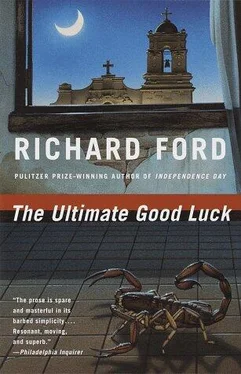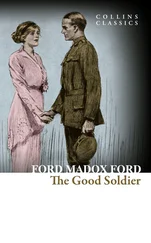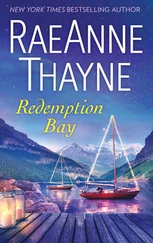Richard Ford - The Ultimate Good Luck
Здесь есть возможность читать онлайн «Richard Ford - The Ultimate Good Luck» весь текст электронной книги совершенно бесплатно (целиком полную версию без сокращений). В некоторых случаях можно слушать аудио, скачать через торрент в формате fb2 и присутствует краткое содержание. Год выпуска: 2010, Издательство: Vintage, Жанр: Современная проза, на английском языке. Описание произведения, (предисловие) а так же отзывы посетителей доступны на портале библиотеки ЛибКат.
- Название:The Ultimate Good Luck
- Автор:
- Издательство:Vintage
- Жанр:
- Год:2010
- ISBN:нет данных
- Рейтинг книги:5 / 5. Голосов: 1
-
Избранное:Добавить в избранное
- Отзывы:
-
Ваша оценка:
- 100
- 1
- 2
- 3
- 4
- 5
The Ultimate Good Luck: краткое содержание, описание и аннотация
Предлагаем к чтению аннотацию, описание, краткое содержание или предисловие (зависит от того, что написал сам автор книги «The Ultimate Good Luck»). Если вы не нашли необходимую информацию о книге — напишите в комментариях, мы постараемся отыскать её.
"His prose has a taut, cinematic quality that bathes his story with the same hot, mercilessly white light that scorches Mexico."-
The Ultimate Good Luck — читать онлайн бесплатно полную книгу (весь текст) целиком
Ниже представлен текст книги, разбитый по страницам. Система сохранения места последней прочитанной страницы, позволяет с удобством читать онлайн бесплатно книгу «The Ultimate Good Luck», без необходимости каждый раз заново искать на чём Вы остановились. Поставьте закладку, и сможете в любой момент перейти на страницу, на которой закончили чтение.
Интервал:
Закладка:
Rae sighed a long sigh. “But is that what you think about me?” she said, not interested in it. “You’ve been protecting our country’s honor. You should be an authority.”
“I don’t know you well enough,” he said, and ran his hand over her flat stomach.
“No judgments on the first date?”
“I’m not an authority on anything,” he said. “That’s all.”
“That’s nice,” she said, and kissed him sweetly on the mouth. “Don’t let me put any pressure on you. I don’t want to do that. This’ll be over soon enough.”
She told him that when he saw her standing under the monitor she’d been there four hours holding the same win tickets, watching every race and the empty track in between, and trying not to get uptight, but hoping all the time something would come along to improve her prospects before the lights went out. She said turning her out was just Frank’s way of saying good-bye, everybody had a way of saying good-bye, and if when Quinn showed up they’d have gone out and looked for the Southwind with the painting of Mount Rainier, it wouldn’t have been there.
“Those little self-contained systems just get smaller,” she said, when Quinn was almost asleep. “They’re fine. But they don’t tolerate enough. You know what I mean? You don’t, do you?” He could hear her in a drowse. “They’re like Frank. They make things simple. I thought I could get along with that. I should have figured it out a long time ago that I couldn’t.”
The Fourier she had was a loaner from the New Orleans Public Library, and she left it in a Tote-Sum in Mississippi City and didn’t ask to go back and get it when she found out it was gone.
He was drawn to her. She was his first serious business since he’d come back, and she made him feel hooked up, even if he hadn’t planned on a permanent guest. He wasn’t sure what exactly he was doing with her, but it didn’t feel like the wrong thing, and it beat Route 90 in the Alamo Plaza rolling for beers, hustling fat coon-ass girls, then lurching back drunk at 5:00 A.M. by himself with no place to go but Seconal-land. Rae’d get stoned after midnight with the light on in the little pink hotel room and tell him there was something interesting about him from having been in the war. He didn’t seem, she said, at all ready to kill anybody and loud noises didn’t make him duck. He was like a doctor, she said, who cured exotic diseases and who had some of the disease left on him, but only enough to make her not want to split right away. Splitting, she said, had gotten to be a specialty.
After six days Quinn drove back to Morgan, checked out of the Alamo Plaza, rented a little railroad house on stilts outside the levee up Six Mile Palourde and moved Rae in, then went back running pipe to the rigs on Atchafalaya. Rae hit St. Vincent de Paul’s for furniture, bought an easel, and sat out afternoons drawing from National Geographic s and Audubon s out of the Parish bookmobile, and playing the Eagles into the cypress swamps, stoned.
There was a feeling Louisiana was just another place for her, like Bay Shore or New Mexico, and she simply adapted right. But he felt like there was some hollow place in him where she made a feeling come at night. Whatever he wanted to do, it seemed like in her judgment she wanted to do it, though it was clear to him it didn’t matter to her who she was with as long as she got adjusted for what she was doing moment to moment. She was locked in present time, he thought, and she was calm and deliberate as if she understood that, even understood the desperation to it, desperation she knew all about and could recognize but didn’t need to acknowledge, as if it was obvious to anybody who knew her and perfectly natural and something to smile about, even if what he felt was the same desperation, only for different reasons.
Sitting out on the high porch with the music, watching her row herself patiently, with long, graceful arms and a green paisley scarf on her head, out into the black water of the Palourde to sit and fish for crappies in the sunshine, he figured she made up what she needed as she went, the complicated parts included now. Nothing got by her. And she seemed older than he was, with a view of the world she had learned to put herself into with ease, and, if he wanted her to do it, could put him in, too, though that wasn’t absolutely necessary to her survival, since she wasn’t waiting for anything else to come along that hadn’t already come once.
After three months with her he took papers as a fitter’s helper and began taking extra days filling spots on the rigs when somebody was slow turning around. It started to make him feel dangerously in something to be in the house seven days, eating and sleeping all alone with her, listening to her mellowed-out music and sitting watching her paint from magazines slowly and calculatedly. Awake at 2:00 A.M. listening to the lizards on the porch and the mosquitoes zizzing through the dense blanket of air, he would start to drift away, and she would suddenly moan out in the darkness and flinch hard and hold him until he couldn’t breathe. And he had to get out of the room and stand on the porch where the air was cooler and get calm. He thought with anybody sooner or later you got to an end point, one last event in a series of events at the end of which there was just a wall of empty air and things got invisible, and then you were in it with them, like it or not, and you had to make up whatever else came along. That was what Frank Oliver had figured out when he left her standing with a handful of win tickets. In the war you maintained your crucial distance from things and that kept you alive, and kept everything out in front of you and locatable. It was why Frank had his cars and his saddle broncs and his Southwind, and why he got scared the moment he even thought he might lose them. He could see all that and negotiate it. He probably hated to lose her. But he saw how much he was losing control with her, and he couldn’t handle it. It was like losing track of a rule, not even that she wanted it lost, but just that she didn’t need a rule herself. And mornings, when he would wake up in the bed, he’d be sweating and as far away from her as he could be, his shoulders and his fingers aching, his head full of noise. And he’d lie in the grey swamp light, feel her breathing, and wish he could move off on some other safer plane of existence, someplace maybe not too far, but far enough to be safe.
On the rig they told him that in L.A. if he could make the airplane factories and the Exxon rigs up the Catalina Channel and kept his name alive, something would pop open in a month. He had eight thousand in the Morgan Bank, and if he stayed four more months he could double it on layoffs, and if you were taking chances what you needed was money. But he thought he needed to make a move. If he was going to stay with Rae — and he wanted to — he needed to get someplace where there was a legitimate outside and where the outside risks were higher than the inside ones. Because where he was now all the risks were the kind you couldn’t see, and those were the ones that scared him. It was his own doing and not hers, he knew. But everything was your own doing one way or another, and you had to live by yourself with the results at the end.
6
HE FELT FEVERISH for the first time now. His bowels had begun to quease and his mouth was sticky, and he had a sweat up. Sick was dangerous, he knew that. Sick never made you scared, just reluctant, and that was worse. Everybody in Vietnam had been sick, but the rhythm had geared down gradually, and the war had finally been run on sick time. People depended on each other according to sick intervals, watched each other with the expectation of diseased response. But in Mexico it was dangerous. It singled you out. Only assholes who drank water or ate candy off the urethane sheets on the street corners got sick. And he was on top of that. He had put a Halazone in every glass of water and considered every bite before he took it. The one thing you didn’t want to be was sick when things began to happen, and right now he didn’t quite have it.
Читать дальшеИнтервал:
Закладка:
Похожие книги на «The Ultimate Good Luck»
Представляем Вашему вниманию похожие книги на «The Ultimate Good Luck» списком для выбора. Мы отобрали схожую по названию и смыслу литературу в надежде предоставить читателям больше вариантов отыскать новые, интересные, ещё непрочитанные произведения.
Обсуждение, отзывы о книге «The Ultimate Good Luck» и просто собственные мнения читателей. Оставьте ваши комментарии, напишите, что Вы думаете о произведении, его смысле или главных героях. Укажите что конкретно понравилось, а что нет, и почему Вы так считаете.







![Theresa Cheung - The Dream Dictionary from A to Z [Revised edition] - The Ultimate A–Z to Interpret the Secrets of Your Dreams](/books/692092/theresa-cheung-the-dream-dictionary-from-a-to-z-r-thumb.webp)




